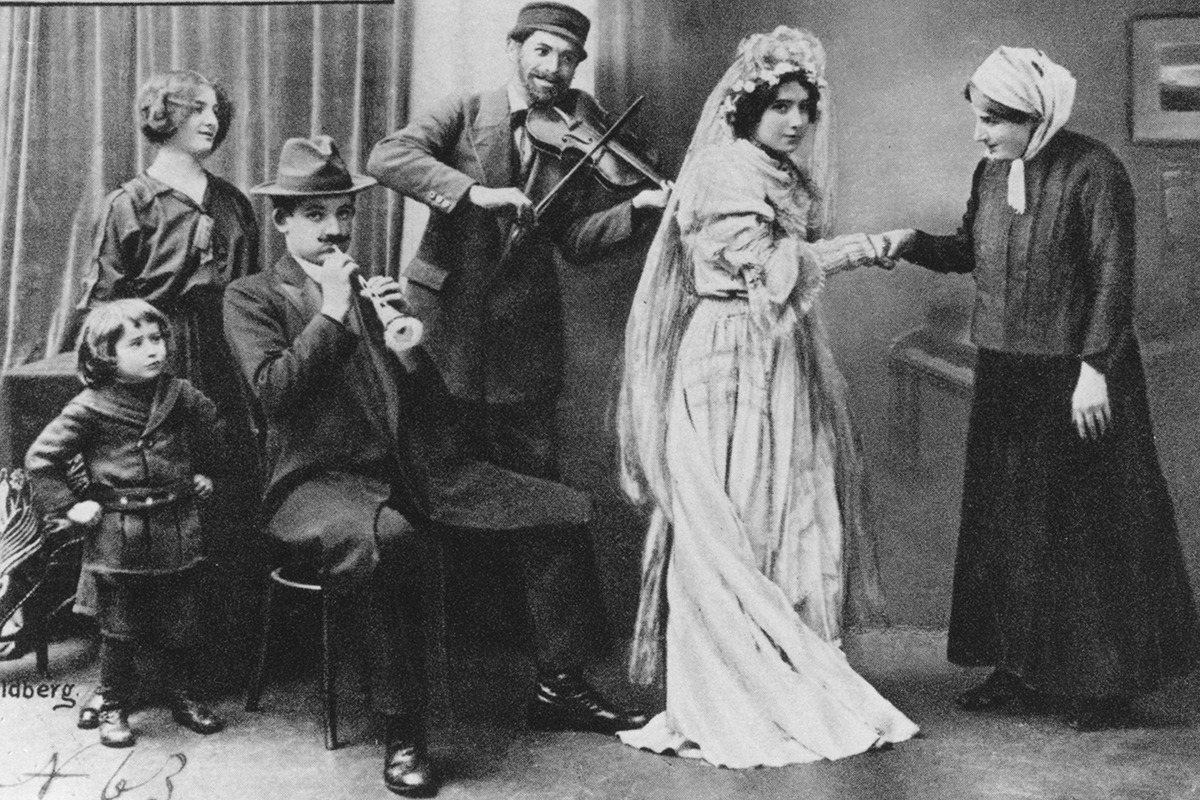Like all of us, with tons of free (and dragging) hours on hand during the pandemic, I’ve been discovering new interests to keep me occupied and sane. Delving into Spotify has meant listening to podcasts for the first time, from audio dramas to non-fiction podcasts covering asexuality, mythology, and other topics uniquely of interest to me. But among the most unexpected and rewarding discoveries I’ve made is the beauty of klezmer music.
To be honest, I’m not sure who discovered it first — my sister or I — but somehow this eclectic, intensely Jewish music joined our musical playlist one day and it has remained a staple ever since.
One of my favorite pastimes with my grandmother, or Babushka as I have grown up calling her, is playing durak, a traditional Russian card game. The objective is to shed all one’s cards until only one player is left at the end of the game with cards in their hand and is thus named the durak or “fool.” During these games, I would sometimes put on some music to listen to as we shifted cards, a contrast from the usual easy silence we have while playing (that is when it’s not interrupted by kvetches of when I’m going to find a boyfriend). To my surprise, she actually liked my taste in music. The large gap in years between us did not stop her from occasionally bopping her head to the likes of Eurovision, R&B, classical music, alternative rock, pop punk, and even Beyoncé.
But never have I seen her react to music the way she does when she hears the first chords of a klezmer song.
Ask any person who grew up with an Ashkenazi Jewish background, or anyone who’s been exposed to Jewish pop culture, and chances are the opening notes of klezmer music will instantly sound familiar. The music style is so intrinsically Jewish that it almost goes without saying. A musical tradition of Jews from Central and Eastern Europe, klezmer carries the influences of Slavic folk music, Romani music, and other cultural stimuli. If you’ve danced the hora at a wedding or b’nei mitzvah to “Hava Nagila,” or listened to the soundtrack of Fiddler on the Roof, then yes, you know what klezmer is.
With dancing at weddings out of the picture for now, at home, we play klezmer as part of our own private concert. Some songs are already familiar, like the upbeat Russian Jewish songs “Tumbalalaika” and “Chiribim Chiribom,” while others, like “Belz, Mayn Shtetele Belz” and “Papirosen,” haunt me with their sweet and quiet melancholy. Whether it’s in reaction to the startling pitch of the clarinet or the mellow sounds of the violin, I find myself completely drawn to this music.
But more than that, it’s a way to deepen the connection to my grandmother.
Growing up in a secular Ukranian-Jewish family, language has often felt like a divide between me, an American-born English-speaking native and my Russian-speaking immigrant grandmother. We speak the best way we can to each other, filling in the gaps of translation with images and allusions. But sometimes it’s not even language that creates the gap, but time. Nearly every time I try to talk with my Babushka about her past — our family’s past — she edges away from the conversation, memories of old wounds still too painful to discuss.
But within klezmer music is a bridge — a shared language — and I am given the chance to see through her eyes, or rather hear through her ears, the echoes of her Jewish childhood. I can take cues from the music itself: at times humorous, other times mournful. And I start to see the fuller picture: of how she was expected to hide her Jewishness growing up in the Soviet Union out of fear for her own safety. How she stopped speaking Yiddish, and slowly lost the language over the years, until she translates a trickle of words she hears in the songs we listen to together now.
When I ask my babushka what she feels when she listens to klezmer music, she says it’s as though her dusha, her soul, is lightened. For a woman like my grandmother, face wrinkled and lovely and exhausted from the weight of the life she’s lived, this answer is beautiful. In the moments when we sit together listening to music — those moments that are so ordinary but so precious — I am able to see the mask of her Slavic stoicism melt down into something softer, tender, even if just for a moment.
And in those moments, she is no longer just the person who scolded me as a kid (and sometimes still scolds me) about being messy, or nags me about finding a boyfriend, or all the other grandmotherly details I take for granted. In those moments, I am reminded that she is not just my Baba Liza, she is also Yelizaveta.
Linguistic imperialism and antisemitism have ripped away of much of my family’s own personal history, estranging us from our own language and heritage. But like all survivors, the remnants of ourselves continue to linger in unexpected places. Whether it’s stories or songs, like those sung by The Barry Sisters, American daughters of Jewish immigrants, I discover there are more pieces of my Jewish culture left available for me than I ever realized.
Hopefully through continuing to listen, little by little, my grandmother and I can continue keep building that third bridge, through whatever materials we find, constructing fresh paths from the old to the new.



